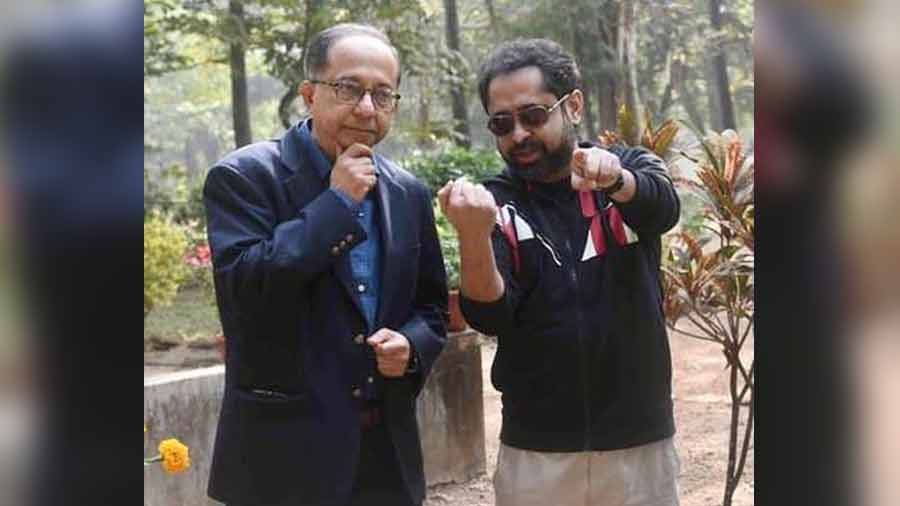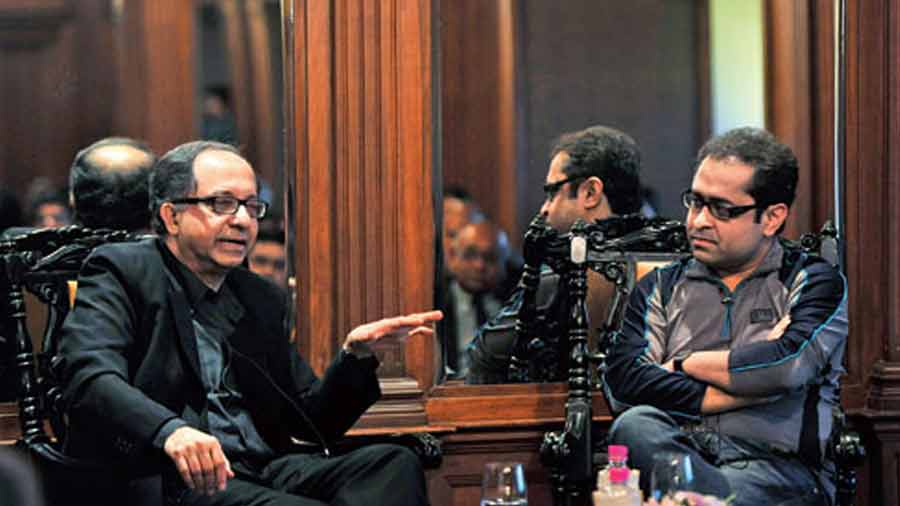In the early Nineties when I was a student of economics at Presidency College, Prannoy Roy’s The World This Week was the one TV programme that we would eagerly watch to just get a glimpse of what’s happening in the world and even in India. It was like no other programme then and what added to its popularity were the interviews that Roy conducted with the invited guests.
I — and many of our generation — was introduced to a suave and sharp economist as one of the guests on The World This Week, who had an uncanny ability to explain complicated economic issues with admirable dexterity and peppered with a dose of humor. That was where I first saw Kaushik Basu. He was already a star economist, teaching at the Delhi School of Economics (DSE).
I had talked economics with ‘Kaushik Basu’!
Later when I went for my master's at the same institution in 1996, studying under Basu was a major draw. Unfortunately, he left for Cornell University that year. While we were at DSE we saw him only twice when he came to visit for a few days. I remember the admiration in our eyes, watching him enter the campus premises while we observed from a distance, having tea at the famous JP’s Tea Stall.
I mustered the courage once to go and ask him about a famous paper by George Akerlof, a Nobel laureate, called “The Market for Lemons”. We were studying the paper in our Game Theory class and I found an excuse to go and talk to him for the first time. What struck me was his humility and patience in answering my question, which I now realise was pretty stupid. I came back to my friends and boasted that I had talked economics with ‘Kaushik Basu’. Of course I did not divulge the stupidity of my question but explained to my classmates how in just a few sentences he explained the gist of the paper to me.
Subsequently in a couple of years I was applying abroad for my PhD studies. I do not know whether my joining Cornell was influenced by Basu being there, but in retrospect I would say it definitely had a part to play. I have so far talked about his ‘star’ image but let me write a bit on his oeuvre of amazing work — straddling Development Economics, Industrial Organisation, Public Economics, Political Economy and, of course, Social Choice Theory, in which he did his PhD at the London School of Economics under Amartya Sen.
Polar ends of the diverse spectrum of his work
What is significant about his research is the elegance of his work, namely, to boil down complex economic questions into tactile models and come up with policy implications. As an example, his seminal work on child labour delves into the question that if child labour as a mass phenomenon occurs not because of parental selfishness but because of the parents’ concern for the household’s survival, the popular argument for banning child labour loses much of its force. In a paper co-authored with Pham Hoang Van, published in the American Economic Review, he gives a non-paternalistic reason to ban child labour which might actually increase the household resources. They argue that parents send their children to work because adult wages are low, and adult wages are low because too many children have inflated the labour supply. A ban may reverse this feedback loop and raise wages to levels where most parents are happy to send their children to schools rather than send them to work. The ban may cease to be coercive. This paper gave rise to an extensive literature and helped shape child labour policies throughout the world.
At the other extreme, he had worked on extremely theoretical topics throughout his career. In his work on dynamic evaluation of welfare of future generations, co-authored with the late Tapan Mitra and published in Econometrica, they raised the important point that standard economic modelling of human behaviour has an inherent bias towards immediate gratification at the cost of future generations. This paper, though very technical, has implications for climate change and other topics. I know I am not doing justice to his vast work when I mention just two of them, hence it is best to treat these papers as the polar ends of the diverse spectrum of his work.
His classes at Cornell were so much fun

Kaushik Basu (left) with Suman Ghosh, in Santiniketan
I attended his classes at Cornell as a PhD student and was fascinated by the vibrancy of his lectures. What was fantastic was that his classes were so much fun, as well as intellectually stimulating, a rare distinction to achieve as a teacher. Within a year at Cornell I decided that I had to work with him and I was extremely fortunate that he agreed to be one of my PhD advisers.
For the next 25 years since then and counting, our relationship became much more than that of a teacher-student. Apart from economics, he enlightened me with his interests in myriad topics, ranging from Vivekananda, Tagore, Bertrand Russell and Harold Pinter to his fascination with puzzles and sudoku. Most importantly he encouraged me to experience life in its fullest.
I told him I was finding films more interesting than economics!
I distinctly remember, once while in the third year of my PhD programme when I was simultaneously taking classes in the films department at Cornell, I told him that I was finding films much more interesting than economics. Any other adviser would have questioned my dedication to economics. He advised me with utmost affection not to leave the PhD programme at that stage but also encouraged me to follow my passion. Ever since, I know that he is equally happy to see my research published in a reputed journal or to watch my latest film.
His writings have made economics more accessible and popular
Throughout his life he has actively written in the popular press and written books which have made a huge impact on making economics more popular, at least in India. He has often been criticised for simplifying the subject and bringing it to the lowest common denominator to make it more accessible. But that is a phenomenon I have observed in many scholars across different fields who have been accused of precisely the same — Richard Feynman in physics and William Dalrymple in history are two examples that come to mind. Some academicians have this notion that making a subject more accessible somehow spoils a certain sanctity and hence should be abhorred.
The Twitter role
In the last few years, he has taken an active role on Twitter, calling out the current government — both on economic issues and social ones. I really respect him for doing so since he was previously accused by many of being too politically correct and often avoiding controversy. In his new role on Twitter and his recent writings on burning economic and social issues, say the farmers movement and demonetisation, he exposes himself to the noxious world of social media but that has not deterred him. He continues to provide the counterpoint to claims made by the government with adequate back-up in terms of data and research. Another bonus from his Twitter posts is his sense of humour, which people who know him personally can attest to.
A myriad-minded man
Above all this, the attribute which I find most endearing about Kaushik da is that I have hardly met someone as nice as him. Just a wonderful human being. I write this piece on the occasion of his 70th birthday (January 9), but for a generation of students like me whom he has impacted in life we want him to continue being there like a banyan tree for many more years. He is among few of the last generation of myriad-minded men we have around in this world which is increasingly becoming a terrain filled with narrower minds.
Suman Ghosh is a professor of economics and a National Award-winning film-maker.






